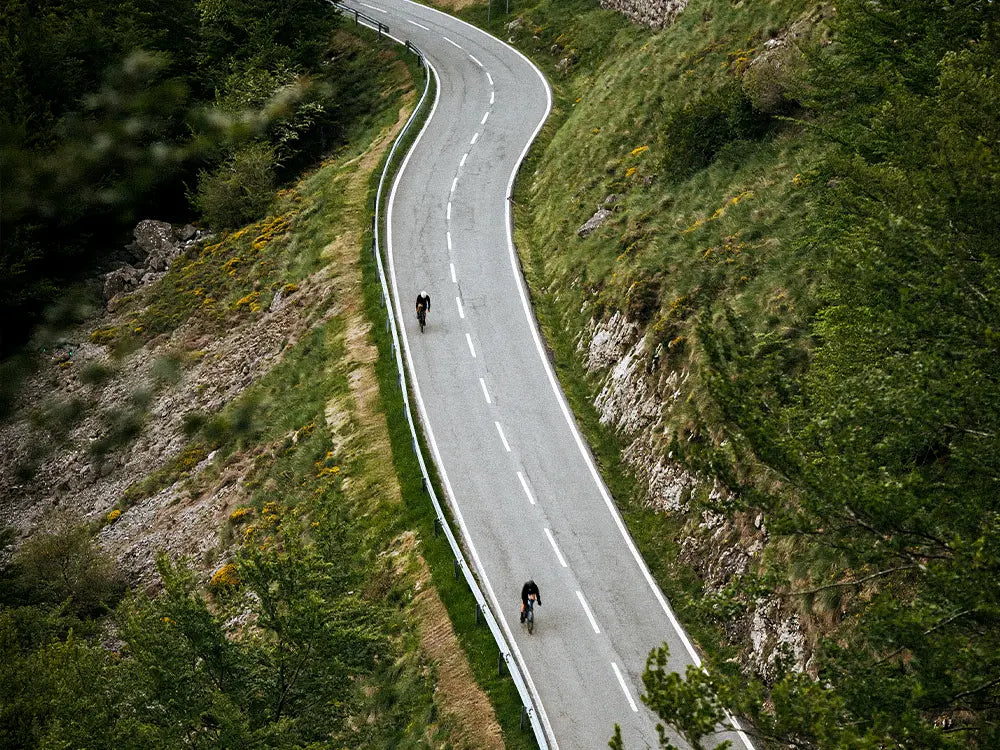Today José Luis García Serrano is a Paralympic triathlete with a ticket to Tokyo 2020 under his arm, in what is the culmination of a path that had curves, danger and traps, and also sad, dark moments, without light.
At the age of six he was diagnosed with an eye disease that would mark his life.. Many years later, in 2012, he lost the sight of his right eye, the left one he had lost some time ago.
A stick, a hard blow, to the heart, the light off. "What am I going to do without being able to see?", a question that consumed him, he, who to date had learned everything by seeing.
"That's the first feeling, with the diagnosis in hand you wonder things you never thought would enter your life. Without seeing it is impossible to go on, I repeated to myself. But I pulled myself together, I was surrounded by a wonderful family, I started to be autonomous with the cane." he recalls.
He changed, he adapted to a new reality that, sad as it was, was his own, the present he was breathing, and the future that awaited him.
José Luis García Serrano began to build the person he is today from scratch, from that day on, a blind construction, we could say, but full of values that he takes to the extreme in every situation that life throws at him.
Three values to continue in the breach
"You make yourself to the new life, there is no other way and with time you hold on to the values that are useful to you." he explains.
What values?
"The first was friendship.I had forged in my adolescence, something that comes as a matter of course with me. Then, an infinite capacity for to relativize things and problems, after my illness everything became very relative. And finally, patience”.
The latter he cultivated after a car accident that put him back on the edge.
Today José Luis García Serrano is the result of all this with an emblem on the bow of his life: "The difficult is achieved, the impossible is attempted.".
This philosophy, which might seem simple to write, even more so to proclaim, is woven into the sport.
"In 2011, I attended a half Iron Man in my village -Buitrago de Lozoya-. I was impressed by those people, their sacrifice, their bodies and yes, also their bikes. When I was told I was going to lose my sight, I started thinking about triathlon as a way forward. I started in a very amateur way, but it became more and more professional. I started with the three disciplines in 2013 and that's where the person I am today came from." he tells us with a suggestive, friendly voice, one of those that you want to listen to.
They call him "Jota".
His efforts were rewarded, to the point that in 2018 he considered going to Tokyo 2020, to the Paralympic Gamesto compete in triathlon. He qualified last year and is among the first to "the six or seven who are in the running for a medal". he specifies.
There he will go "Jota"the nickname that has haunted him since childhood: "When I was little my parents had a bar. They named it JJ, after my brother José and me. Since then I've been called Jota.
And so "Jota" built his identity in networks, being with an Erasmus scholarship in Amsterdam, he is a physiotherapist, he found a Nick with a hook: "On Instagram I am @JotaBlindGame”.
Life lessons and optimism
All this acerbic she shares in talks at charities and companies: "I believe that my experience is enriching, that there are many people who at a given moment need to turn their lives around when they did not consider certain scenarios.".
From minute zero, Gobik was part of his road companions, a partner that dresses his road and running moments, in addition to the tritrajes. "They have that quality that requires the highest demands, but also a nice design" he describes.
Although the Sierra Madrileña is his kilometer zero, he will prepare for the Paralympics in Murcian waters, close to Gobik. "I need warm water, which is what is expected in Tokyo, that gives you a dehydration point that is convenient to train for.".
José Luis García "Jota" is still going about his business: "A medal would be incredible and why not dream of gold".
In a few months we will know his fate.
A dose of empathy and self-improvement
The life of "Jota" is one of those stories that grabs you from the first line, of knowing how to bring a smile to others when you are the one who needs it most, of not being afraid of the craziest challenges and of sharing moments with the sole objective of forming the best team.
His life experience is an example of nonconformism for everyone and from the team at Gobik team we are proud to be able to spend an unforgettable day with Jota, and that she is already one of our family.
Texts: JoanSeguidor's Notebook
Photos: Jota Blind Game









